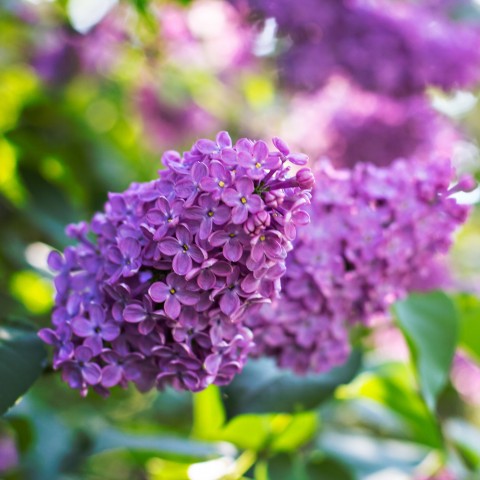Sometimes the weather remains the same as it was yesterday, and sometimes it changes dramatically and affects everything you plan to do tomorrow. Indeed, weather is a part of a human’s daily life and often influences people’s moods and plans. China’s weather is no different.
However, no matter how ever-changing the weather is, you’ll always share the same piece of sky with the people around you, and that’s something we all have in common. Therefore, the weather has become an essential topic for starting conversations in many cultures. Not surprisingly, in China, people also enjoy smoothly opening up a conversation as they talk about the weather.
As a Chinese language learner, I’m sure you can’t wait to get the hang of this versatile conversation starter. If you’re planning to travel to China, then congrats! There’s another good reason to better prepare for your adventurous trip, as there’s a wide spectrum of regions in China that may possess different weather patterns. This provides you with an array of options and possibilities for describing weather in Chinese.
It’s not challenging to talk about the weather in Chinese like a native. It will definitely warm your conversation effectively, as long as you know the right phrases—and they’re all simple and easy to follow!
Ready to learn weather in Chinese? Let’s get right into our exploration of the seasons and weather in Chinese culture.
Table of Contents
- Weather Terms in Chinese: Weather Words and Phrases
- Temperature and Seasons
- Common Sentence Patterns to Talk about Weather
- The Most Common Ways to Comment on the Weather in Chinese
- Useful Phrases for Weather
- How ChineseClass101 Can Help You Master Chinese Conversation
1. Weather Terms in Chinese: Weather Words and Phrases
Before you can start talking about weather in Chinese, you’ll need the most essential Chinese weather vocabulary under your belt. Here are the most common weather conditions in Chinese regions.
In English: sun
Pinyin: tài yáng
In Chinese: 太阳
In English: cloud
Pinyin: yún
In Chinese: 云
In English: rain
Pinyin: yǔ
In Chinese: 雨
In English: snow
Pinyin: xuě
In Chinese: 雪
In English: wind
Pinyin: fēng
In Chinese: 风
In English: drizzle
Pinyin: máo máo yǔ
In Chinese: 毛毛雨
In English: hail
Pinyin: bīng báo
In Chinese: 冰雹
2. Temperature and Seasons
As you might imagine, as the seasons change, the small conversations that center around the four seasons change along the way. Different seasons possess different characteristics, which gives people particular activities to enjoy in accordance. The weather in Chinese culture plays a large role in how people go about their day-to-day lives throughout the year. Thus, it’s essential to know how to describe the weather in Chinese according to season.
In China, there’s catkin that’s blown along with the spring wind, there’s snow in winter, and sometimes you may even see hail in summer. You might ask: What’s the weather in China? But keep in mind before learning the types of weather in Chinese, that this may differ greatly depending on which part of China you’re in.
For example, like most other cultures, Chinese people love to go skiing during the winter, and children prefer building a snowman or having a snowball fight as well. Similarly, the Chinese are more inclined to go hiking or take a walk outside during the marvelous spring season, where flowers bloom in exuberance and the green spills over every corner.
Flowers are one of the best things that spring offers us!
However, Chinese people certainly have their own interpretation of appreciating beauty in different seasons. In spring, a highlight event would be 赏花 (shǎng huā), meaning “appreciating flowers,” an artistic habit that’s been around since the time of ancient China. If you’re interested in classical Chinese poetry, 古诗 (gǔ shī), you’ll find that there are many famous ancient poems which show the gist of this culture.
In summer, a staple food people prepare to make the heat more bearable is called 绿豆汤 (lǜ dòu tāng), a weapon that fights off heat stroke in Chinese culture. It’s a sweet mung bean soup which is easy to make.
The Chinese view the fall season as a golden harvest season due to the great production of various foods and fruits. Therefore, a typical event is to pick up some organic fruit or food from local gardens. Or they may choose to appreciate the blooming maple trees since it’s the symbolic flower for the beauty of fall.
Below, you’ll find more practical weather adjectives in Chinese based on season. Using these words, you’ll be able to craft sentences about adverse weather in Chinese, or strike up a conversation about how nice the weather is!
1- Spring
- In English: warm
Pinyin: nuǎn huo
In Chinese: 暖和Usage in a Sentence
In English: On such a warm day, I just really want to stay in my blanket all day long.
Pinyin: Zài zhè me nuǎn huo de tiān qì lǐ, zhēn xiǎng zài bèi wō lǐ dāi yī zhěng tiān.
In Chinese: 在这么暖和的天气里,真想在被窝里呆一整天。 - In English: nice weather
Pinyin: hǎo tiān qì
In Chinese: 好天气Usage in a Sentence
In English: Today’s nice weather somehow makes my mood bright as well.
Pinyin: jīn tiān de hǎo tiān qì sì hū bǎ wǒ de xīn qíng yě biàn dé míng lǎng le.
In Chinese: 今天的好天气似乎把我的心情也变得明朗了。 - In English: rainy
Pinyin: duō yǔ de
In Chinese: 多雨的Usage in a Sentence
In English: Spring is such a rainy season.
Pinyin: Chūn jì kě zhēn shì gè duō yǔ de jì jiē.
In Chinese: 春季可真是个多雨的季节。
2- Summer
- In English: hot
Pinyin: rè
In Chinese: 热Usage in a Sentence
In English: The weather is so hot that I feel like my body is going to melt.
Pinyin: Tiān qì rè de ràng wǒ jué de zì jǐ hǎo xiàng kuài yào bèi róng huà le yī yàng.
In Chinese: 天气热得让我觉得自己好像快要被融化了一样。 - In English: scorching
Pinyin: zhuó rè de
In Chinese: 灼热的Usage in a Sentence
In English: My eyes are unable to open in front of the scorching sun.
Pinyin: Zài zhè zhuó rè de tài yáng miàn qián, wǒ de yǎn jīng dōu bèi cì de zhēng bù kāi le.
In Chinese: 在这灼热的太阳面前,我的眼睛都被刺得睁不开了。 - In English: humid
Pinyin: mēn rè de
In Chinese: 闷热的Usage in a Sentence
In English: The humid weather is making it difficult for people to breathe.
Pinyin: Zhè mēn rè de tiān qì zhēn ràng rén chuǎn bú guò qì lái.
In Chinese: 这闷热的天气真让人喘不过气来。
3- Fall
- In English: cool and refreshing
Pinyin: liáng shuǎng
In Chinese: 凉爽Usage in a Sentence
In English: Every time the wind in fall blows through, a cool and refreshing feeling will come over my face.
Pinyin: Měi dāng qiū fēng guā qǐ, yī zhèn liáng shuǎng de gǎn jué biàn huì yíng miàn ér lái.
In Chinese: 每当秋风刮起,一阵凉爽的感觉便会迎面而来。
4- Winter
- In English: freeze
Pinyin: bīng dòng
In Chinese: 冰冻Usage in a Sentence
In English: My toes are freezing so much that they are getting numb.
Pinyin: Wǒ de jiǎo zhǐ tóu dōu bèi bīng dòng de méi yǒu zhī jué le.
In Chinese: 我的脚趾头都被冰冻得没有知觉了。 - In English: cold
Pinyin: hán lěng de
In Chinese: 寒冷的Usage in a Sentence
In English: Although it is a cold winter, my heart stays warm.
Pinyin: Zài zhè gè hán lěng de dōng tiān, wǒ de xīn què shì nuǎn de.
In Chinese: 在这个寒冷的冬天,我的心却是暖的。
3. Common Sentence Patterns to Talk about Weather
Here are some good phrases for weather in Chinese. Just follow the patterns laid out below, and you can talk about different types of weather in Chinese with ease!
1- Today it’s so + [adjective].
In English: It’s so [hot].
Pinyin: Jīn tiān kě zhēn [rè].
In Chinese: 今天可真[热]。
2- It’s [number] degrees.
In English: It’s [40] degrees.
Pinyin: Jīn tiān qì wēn yǒu [sì shí] dù.
In Chinese: 今天气温有[四十]度。
3- This weather suits [an event] so much!
In English: This weather suits [swimming] so much!
Pinyin: Jīn tiān tiān qì kě zhēn shì hé [yóu yǒng]!
In Chinese: 今天天气可真适合[游泳]!
4- It’d be nice to do [something] in such weather.
In English: It’d be nice to [go hiking] in such weather.
Pinyin: Zài zhè me hǎo de tiān qì xià qù [dēng shān] gāi duō hǎo a.
In Chinese: 在这么好的天气下去[登山]该多好啊。
4. The Most Common Ways to Comment on the Weather in Chinese
Here, you’ll learn how to talk about weather in Chinese based on the season. These common weather phrases in Chinese will greatly benefit you in a variety of weather conditions.
1- In Spring
In English: The weather is nice, let’s go take a walk outside!
Pinyin: Jīn tiān tiān qì zhēn hǎo, wǒ men chū qù zǒu zǒu ba!
In Chinese: 今天天气真好,我们出去走走吧!
In English: It would be such a waste if we didn’t go outside during such nice weather.
Pinyin: Zhè me hǎo de tiān bù chū qù zǒu zǒu zhēn shì làng fèi le.
In Chinese: 这么好的天不出去走走真是浪费了。
In English: The sun is nice today.
Pinyin: Jīn tiān tài yáng zhēn hǎo.
In Chinese: 今天太阳真好。
2- In Summer
In English: Be careful not to have a heat stroke during such a hot summer.
Pinyin: Dà xià tiān de xiǎo xīn bié zhòng shǔ le.
In Chinese: 大夏天的小心别中暑了。
Isn’t summer the perfect season for swimming?
In English: Let’s go swimming to get rid of the heat.
Pinyin: Wǒ men qù yóu yǒng jiě shǔ ba.
In Chinese: 我们去游泳解暑吧。
In English: It’s so hot, let’s get some watermelons to eat.
Pinyin: Tiān zhè me rè, zán men mǎi diǎn xī guā chī ba.
In Chinese: 天这么热,咱们买点西瓜吃吧。
3- In Fall
In English: The weather is so comfortable.
Pinyin: Zhè tiān qì kě zhēn shū fu.
In Chinese: 这天气可真舒服。
In English: It’s the harvest season again; maybe we should go pick some fruit.
Pinyin: Yòu dào le shōu huò de jì jié, yě xǔ wǒ men yīng gāi qù cǎi zhāi shuǐ guǒ.
In Chinese: 又到了收获的季节,也许我们应该去采摘水果。
4- In Winter
In English: It’s getting cold; remember to wear more clothes.
Pinyin: Tiān qì yuè lái yuè lěng le, jì dé duō chuān yī fu.
In Chinese: 天气越来越冷了,记得多穿衣服。
Be careful if you are a beginner at skiing!
In English: It’s finally snowing, we can now go have a snowball fight / build a snowman / skiing.
Pinyin: Zhōng yú xià xuě le, wǒ men kě yǐ chū qù dǎ xuě zhàng / duī xuě rén / huá xuě le.
In Chinese: 终于下雪了,我们可以出去打雪仗 / 堆雪人 / 滑雪了。
5. Useful Phrases for Weather
In English: Where can I buy an umbrella?
Pinyin: Qǐng wèn nǎ lǐ yǒu mài sǎn de dì fāng?
In Chinese: 请问哪里有卖伞的地方?
In English: The rain is really heavy, can you please pick me up?
Pinyin: Yǔ xià de shí zài shì tài dà le, nǐ kě yǐ kāi chē lái jiē wǒ ma?
In Chinese: 雨下得实在是太大了,你可以开车来接我吗?
In English: The sun is too strong, I need to put on some sunscreen.
Pinyin: Tài yáng tài dà le, wǒ xū yào tú diǎn fáng shài shuāng.
In Chinese: 太阳太大了,我需要涂点防晒霜。
In English: The wind is blowing hard right now, let’s close all the windows.
Pinyin: Fēng xiàn zài guā de hǎo dà, zán men bǎ chuāng hù quán dōu guān shàng ba.
In Chinese: 风现在刮得好大,咱们把窗户全都关上吧。
In English: There is lots of snow outside, it’s not safe to drive.
Pinyin: Wài miàn de xuě tài duō le, kāi chē chū qù huì bù ān quán.
In Chinese: 外面的雪太多了,开车出去会不安全。
In English: It’s very likely to rain today; we’d better cancel our plans for today just in case.
Pinyin: Jīn tiān yǒu kě néng huì xià yǔ, wǒ men zuì hǎo hái shì qǔ xiāo jīn tiān de jì huà, yǐ fáng wàn yī.
In Chinese: 今天有可能会下雨,我们最好还是取消今天的计划,以防万一。
6. How ChineseClass101 Can Help You Master Chinese Conversation
Now that your knowledge of China’s weather has been enriched, you should better understand how to break the ice with the witty conversation starters we’ve just introduced to you.
ChineseClass101 will reveal to you the most efficient takeaways in the Chinese language while allowing you to embrace the art of language. Here, you’ll find almost everything you need to better understand Chinese culture and the language, with lessons crafted with you in mind. Hurry up, and find satisfaction for your curiosity. Continue exploring our website to start the adventure!
Are seasons and weather talk similar in your own country, or different? Let us know in the comments! And while you’re at it, why not practice what you’ve learned by writing us a weather description in Chinese? 😉


















